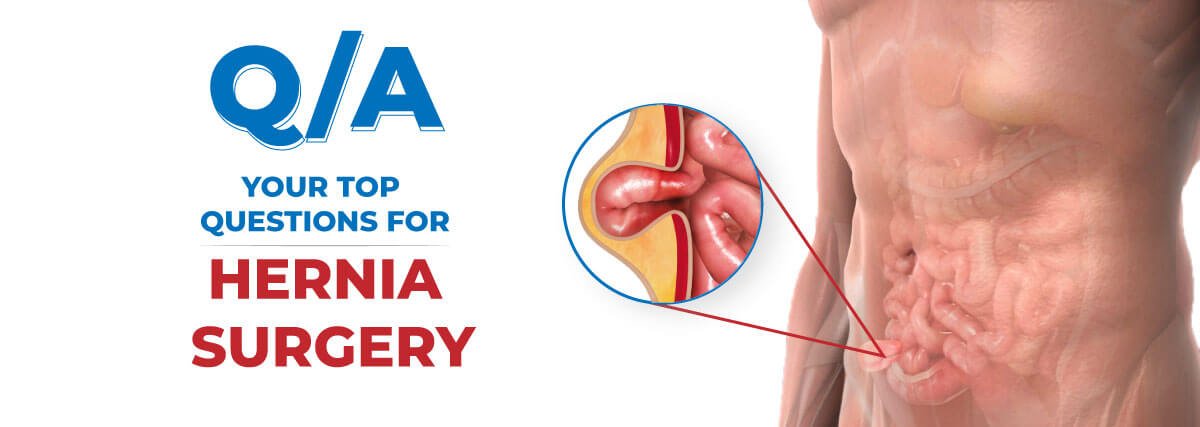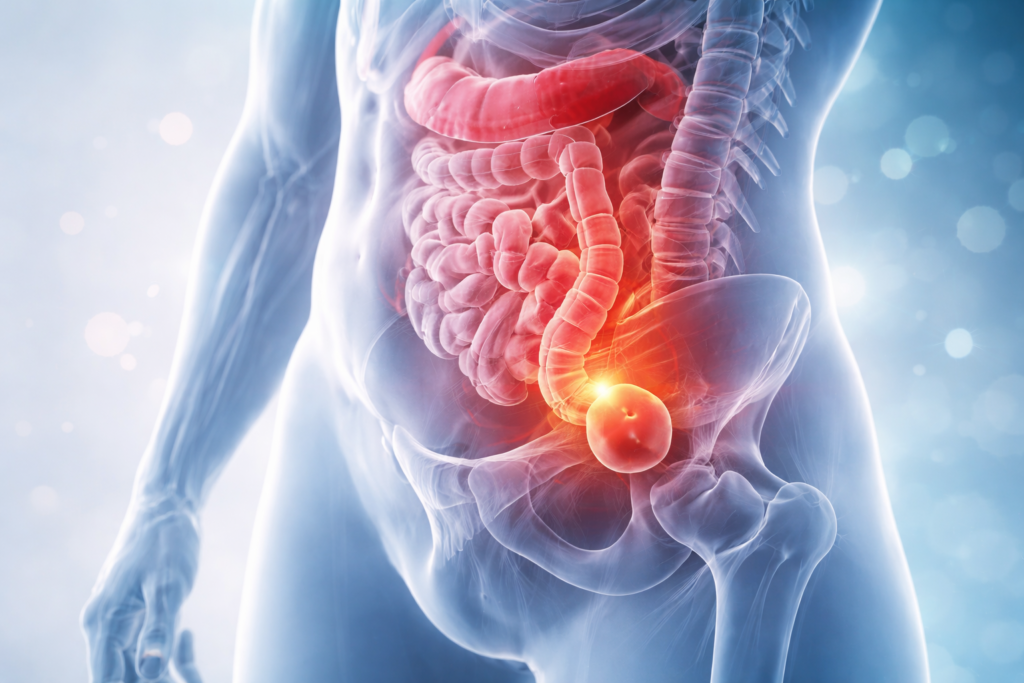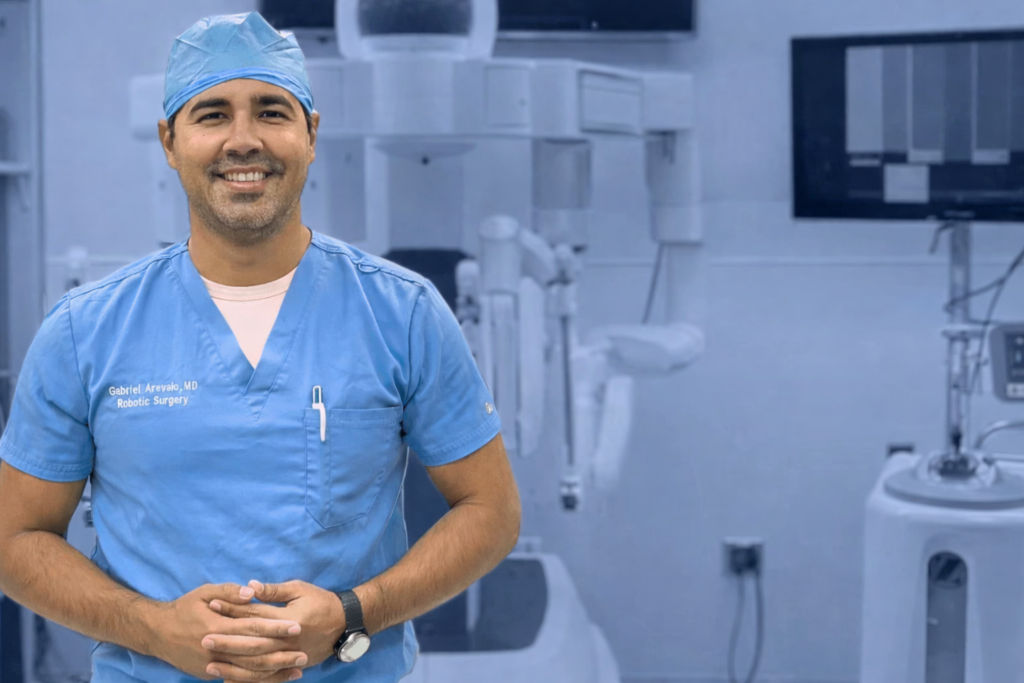
Answering Your Top 8 Questions for Hernia Surgeries
One in five people will have a hernia in their lifetime, and the only treatment is surgery. Today, this intervention can be done with minimally invasive techniques. Benefits? Less hospital stay and faster recovery. Most patients tend to have many questions before and after surgery, and in this blog, I will be answering my top 8 questions asked for hernia surgeries.
Table of Contents
1. What causes a hernia?
- Anyone can get a hernia at any age, but they are more common as we get older. Certain activities may increase the likelihood of a hernia, including persistent coughing, difficulty with bowel movements or urination, or frequent need for straining.
- An incision in your abdominal wall will always be an area of potential weakness. Hernias can develop at these sites due to heavy straining, aging, obesity, injury, or following an infection at that site following surgery. They can occur immediately following surgery or may not become apparent for years later following the procedure.
2. How are hernias treated?
Hernia repair can be done through two options: open surgery or minimally invasive surgery (laparoscopic, robotic, or hybrid). Open surgery involves making a larger incision to access the hernia and can take about 3 hours, while minimally invasive surgery involves making a smaller incision, and it only takes about 1 hour. The right surgery will depend on the size of your hernia, where the abdominal wall is, whether this is the first time it is getting repaired, and what your general health is like. Dr. Arevalo is a fellowship certified hernia expert and will determine which approach fits best for you.
3. What should I expect after hernia surgery?
- Patients are encouraged to engage in light activity while at home after surgery. Your surgeon will determine the extent of activity, including lifting and other forms of physical exertion.
- Post-operative discomfort is usually mild to moderate.
- If you begin to have fever, chills, vomiting, are unable to urinate, or experience drainage from your incisions, you should call your surgeon immediately.
- If you have prolonged soreness and are getting no relief from your prescribed pain medication, you should notify your surgeon.
- Most patients can get back to their normal activities in a short period. These activities include showering, driving, walking upstairs, work, and sexual intercourse.
- Occasionally, patients develop a lump or some swelling in the area where their hernia had been. Frequently this is due to fluid collecting within the previous space of the hernia. Most often this will disappear on its own with time.
- You should ask your physician when you need to schedule a follow-up appointment. Typically, patients schedule follow-up appointments within 2-3 weeks after their operation.
4. How long will I be off work after a hernia operation?
After hernia surgery, you are likely to feel a little uncomfortable for a few days. But you should feel better after a few days. Dr. Arevalos' patients return to work quite fast due to the benefits of robotic surgery.
Most people who have open hernia repair surgery for large hernias can go home in one or 2 days after surgery. For minimally invasive surgery, patients can go home the same day or next depending on the complexity of the surgery. Recovery time is approximately 2 weeks but starts on day one by walking and moving out of bed. You will most likely be able to resume light activities soon after surgery . But, there are still activity restrictions, such as lifting no more than 20 pounds for the first 2 weeks.
5. How do you get out of bed after hernia surgery?
Dr. Arevalos patients follow an enhanced recovery pathway after surgery, this means patients are encouraged to get out of bed and walk the same day of surgery among other instructions.
As long as there are no contrary guidelines, it will be advisable to get up 2 to 3 times to walk a little. To do this, there must be always a person next to you who helps you turn on your side. Then you should bend your knees so that they hang over the side of the bed, and with the help of your arms, lift your upper body.
6. How do you poop after hernia surgery?
Constipation can be very common after hernia surgery, which is why I will give you 5 tips to help you have a bowel movement.
- Drink plenty of water
- Drink prune juice,
- Eat foods that are richer in fiber, such as pears, apples, bananas, and nuts.
- Take walks to help your digestive system to get going again.
- Chewing gum to help your digestive system to get going again.
7. Does the bulge go away after hernia surgery?
Yes. After surgery, the bulge should be gone. What you can see is fluid accumulation or inflammation and swelling, giving the sense of a bulge.
8. When to call your doctor?
Be sure to call your surgeon if you develop any of the following symptoms:
- Persistent fever over 101°F (39°C)
- Bleeding
- Increased abdominal swelling or pain
- Pain that is not relieved by your medications
- Persistent nausea or vomiting
- Chills
- Persistent cough or shortness of breath
- Drainage from any incision
- Redness surrounding your incisions
Other questions...
Make sure to call your doctor for any other questions you may have. If you haven’t gone through surgery yet, but you are thinking about it, you can always make an appointment with Dr. Arevalo and feel free to ask as many questions you like.




